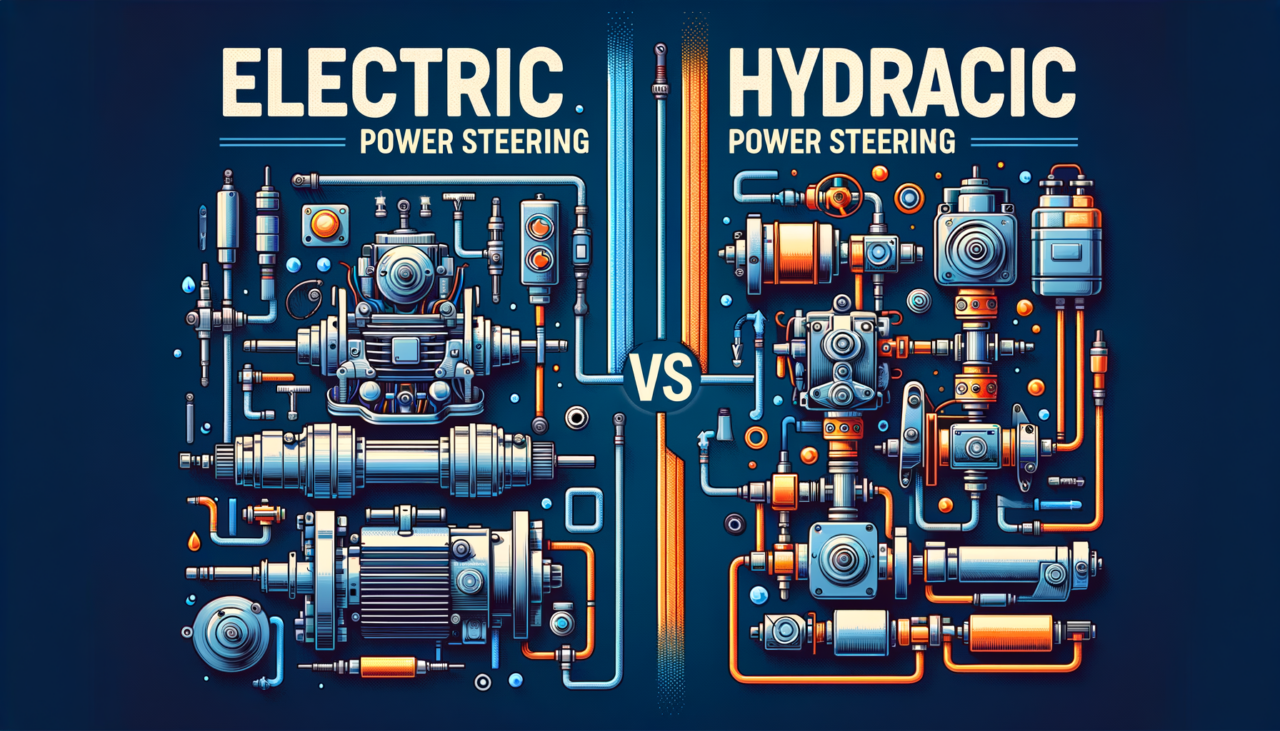Electric vs. Hydraulic Power Steering: Which is Better for Your Ride?
G’day, car enthusiasts and casual drivers alike! Darrin here, ready to steer you through the twists and turns of a topic that might just make your next drive smoother. Today, we’re diving into the world of power steering systems, comparing the electric and hydraulic variants. Whether you’re in the outback or navigating the urban jungle, understanding these systems can make all the difference in your driving experience. So, buckle up as we explore the nuances of electric versus hydraulic power steering.
Understanding the Basics
Before we get into the nitty-gritty, let’s break down what power steering is all about. It’s that unsung hero that makes turning the wheel feel like a breeze rather than a workout. There are two main types: Electric Power Steering (EPS) and Hydraulic Power Steering (HPS). Each has its own set of traits, much like choosing between a trusty old ute and a flashy sports car.
Electric Power Steering (EPS)
Characteristics:
-
Efficiency: EPS systems are known for their fuel efficiency. They only draw power when needed, unlike hydraulic systems, which are constantly running off the engine.
-
Precision: With EPS, you get enhanced control and steering precision. It’s like having a GPS guiding you through a maze—only smoother.
-
Maintenance: Less wear and tear means fewer trips to the mechanic. EPS systems are generally lower maintenance, saving you time and money in the long run.
-
Customization: Many EPS systems can be tuned for different driving styles, offering flexibility whether you’re in the city or cruising along the Great Ocean Road.
-
Weight: These systems are lighter, contributing to overall vehicle efficiency and handling.
Hydraulic Power Steering (HPS)
Characteristics:
-
Feedback: For those who like to feel the road beneath them, HPS provides better tactile feedback. It’s akin to having a close mate who’s brutally honest.
-
Reliability: Tried and tested, hydraulic systems have been around longer and are known for their durability in various driving conditions.
-
Simplicity: The straightforward mechanics can be a boon for DIY enthusiasts who enjoy tinkering under the hood.
-
Cost: Initially, HPS systems can be cheaper to install, which might appeal if you’re watching the budget.
-
Power: Provides consistent steering power, particularly useful in larger vehicles or trucks.
Comparative Table
| Feature | Electric Power Steering (EPS) | Hydraulic Power Steering (HPS) |
|---|---|---|
| Efficiency | High | Moderate |
| Steering Precision | High | Moderate |
| Maintenance | Low | Moderate to High |
| Customization | High | Low |
| Weight | Light | Heavy |
| Road Feedback | Low | High |
| Initial Cost | Moderate to High | Low |
| Power Consistency | Variable | Consistent |
| Reliability | High | High |
Real-Life Anecdote
Let me share a tale from the road. My mate Mick, who swore by his old hydraulic system, switched to an electric one last year. At first, he missed the feedback from the road, but when he realized how much smoother his city driving had become, not to mention the savings on fuel, he was converted. Now, he’s always the first to suggest a road trip—just to show off his car’s newfound agility!
Conclusion
So, which is better: electric or hydraulic power steering? Well, it depends on what you value most. If efficiency, precision, and low maintenance are your priorities, then an electric system might be your best bet. However, if you crave road feedback and enjoy a simpler, more tactile driving experience, a hydraulic system could be your ideal match.
Ultimately, both systems have their merits, and the choice boils down to your personal driving style and needs. Just like a trusty old friend or a new acquaintance, each has its place in the world of motoring. Whichever you choose, may your journeys be smooth and your destinations rewarding. Happy driving, folks!

Comments (0)
There are no comments here yet, you can be the first!